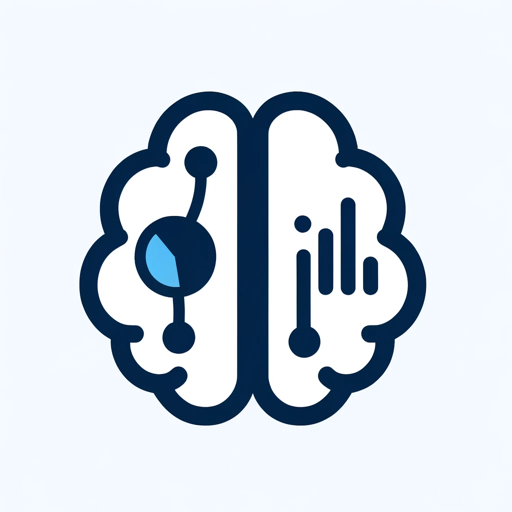Accounting GPT-AI Accounting Support Tool
AI-Powered Accounting Made Simple
Your accounting expert.
Please introduce the accounting method for long-term equity investments according to International Accounting Standards.
Please introduce the Capital Asset Pricing Model.
Initial investment principal of 100 USD, annual interest1. Initial investment principal of 100 USD, annual interest rate of 5%, what is the future value after 5 years?
At the end of each year, an investment of 100 USD is made at an interest rate of 5%. What is the future value of the annuity after 10 years?
What is the concept of Asset according to IFRS.
Related Tools
Load More
GPT Finder
Discover the best Custom GPT at OpenAI's GPT Finder

Corporate Finance GPT
Specialist in corporate finance, offering strategic insights and best practices.

GPT Action Schema Creator
Creates a Open AI API 3.0 Schema for GPT Actions

Stock Analysis GPT
By searching and analyzing key information and PREDICTing stock prices, the TigerGPT team crafted this AI investment assistant to help investors. Only TigerGPT can do: Real-Time Market Data, Stock Movement Analysis, Earnings Data & Analysis, News & Viewpo

GPT Builder V2.4 (by GB)
Craft and refine GPTs. Join our Reddit community: https://www.reddit.com/r/GPTreview/

GPT Business Intelligence
Expert in Business Data Analysis for Strategic Insights
20.0 / 5 (200 votes)
Introduction to Accounting GPT
Accounting GPT is a specialized AI designed to assist with accounting policies, treatments, and financial analysis. Built on the GPT-4 architecture, it leverages advanced natural language processing capabilities to interpret and generate text related to accounting and finance. It can analyze financial statements, interpret complex accounting standards, and provide detailed explanations or summaries. For example, in a scenario where a business needs to understand the implications of a new accounting standard, Accounting GPT can break down the standard into comprehensible terms and offer insights on how it impacts the financial reporting.

Main Functions of Accounting GPT
Financial Analysis
Example
Analyzing a company's balance sheet to assess financial health.
Scenario
A financial analyst at a mid-sized firm uses Accounting GPT to evaluate the company's liquidity, solvency, and profitability by examining the balance sheet, income statement, and cash flow statement. The AI provides detailed ratios and trends, helping the analyst make informed decisions about investments and resource allocation.
Interpretation of Accounting Standards
Example
Explaining the nuances of IFRS 16 for lease accounting.
Scenario
An accountant at a multinational corporation consults Accounting GPT to understand the requirements and implications of IFRS 16. The AI breaks down the standard's requirements, offering examples of how to account for different types of leases and the impact on financial statements. This helps ensure compliance and accurate financial reporting.
Financial Reporting Assistance
Example
Generating accurate financial reports based on input data.
Scenario
A small business owner uses Accounting GPT to prepare monthly financial reports. The owner inputs raw financial data, and the AI generates comprehensive reports, including the income statement, balance sheet, and cash flow statement. This allows the owner to keep track of the business's financial performance without needing extensive accounting knowledge.
Ideal Users of Accounting GPT Services
Financial Analysts
Financial analysts benefit from Accounting GPT's ability to perform detailed financial analysis and generate insights from complex datasets. It helps them make informed decisions by providing accurate and comprehensive financial information.
Accountants and Auditors
Accountants and auditors find Accounting GPT useful for interpreting accounting standards and ensuring compliance. It assists in understanding regulatory requirements and preparing accurate financial statements, thus improving the efficiency and accuracy of their work.
Small Business Owners
Small business owners who may not have extensive accounting knowledge can use Accounting GPT to manage their financial reporting and analysis. It helps them generate necessary financial documents and understand their business's financial health without needing a dedicated accounting team.

How to Use Accounting GPT
1
Visit aichatonline.org for a free trial without login, also no need for ChatGPT Plus.
2
Familiarize yourself with the platform's interface, which includes options for uploading files, entering queries, and selecting specific accounting-related tools.
3
Identify the accounting task you need assistance with, such as financial analysis, policy clarification, or report generation, and input the relevant data or queries into the system.
4
Review the detailed and context-specific responses provided by Accounting GPT, ensuring they meet your professional or academic standards.
5
Utilize any provided tools or options to export, refine, or further analyze the results for your specific use case.
Try other advanced and practical GPTs
From image to text 📷💬
AI-powered Image Descriptions

Circuit Sage
AI-powered assistant for electronics learning.
App Icon Creator
AI-powered icons for modern design
All-Bot - Proteus v6
Adaptable AI for Any Task

Navigator for OpenAI
Your guide through OpenAI's complexities

On Page SEO
Optimize your website with AI precision.

Overleaf GPT
AI-powered tool for seamless LaTeX report creation.

React AI
AI-powered solutions for every task.

Research Co-pilot
AI-powered research and design solutions

T-Shirt Vector Generator
AI-powered t-shirt design creation.

TXYZ
AI-powered insights for your research.

Grammar GPT
AI-driven grammar correction and tone refinement

- Data Analysis
- Academic Research
- Report Generation
- Financial Analysis
- Policy Clarification
Accounting GPT: Frequently Asked Questions
What types of accounting tasks can Accounting GPT handle?
Accounting GPT can assist with a wide range of accounting tasks including financial analysis, policy interpretation, report generation, and providing detailed explanations on complex accounting topics.
Is Accounting GPT suitable for both professionals and students?
Yes, Accounting GPT is designed to cater to the needs of both professionals and students by providing contextually accurate and detailed information, whether it's for real-world accounting scenarios or academic purposes.
How does Accounting GPT ensure the accuracy of its responses?
Accounting GPT leverages advanced AI models trained on vast datasets, including up-to-date accounting standards and practices, to ensure that responses are accurate, reliable, and relevant.
Can I upload my own financial data to analyze with Accounting GPT?
Yes, you can upload your financial data, and Accounting GPT will analyze it to provide insights, identify trends, and even suggest potential improvements based on best practices.
Does Accounting GPT support international accounting standards?
Absolutely. Accounting GPT is equipped to handle various international accounting standards, including IFRS, GAAP, and other localized standards, providing tailored advice depending on the region.